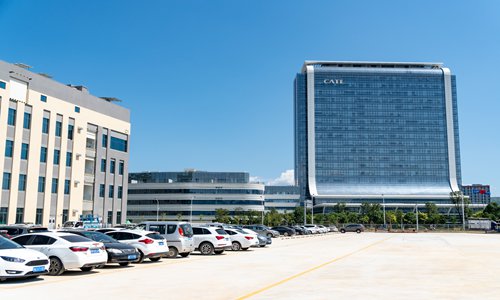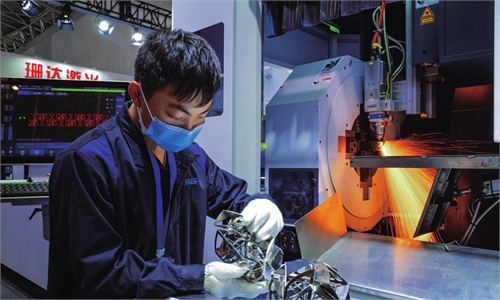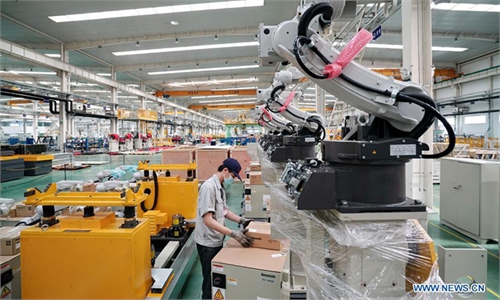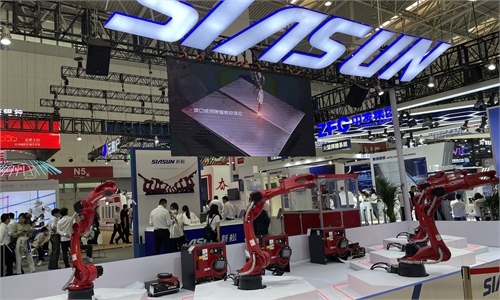High-tech upstarts 'nation's new focus'
Consumer sector falls out of favor as investors throng to NEVs

A view of CATL's headquarters in Ningde, East China's Fujian Province. File photo: VCG
China will focus on high-technology industries to develop new economic engines instead of relying on capital flooding in the second half of this year, a policy direction that is indicated at a recent meeting of the Political Bureau of the Communist Party of China (CPC) Central Committee, but is also shown by a shift of investment capital from traditional blue-chip stocks like Kweichow Moutai to technology upstarts, especially those related to the new-energy vehicle (NEV) sector.During the Political Bureau meeting held on July 30, which set the tone for China's economic development in the second half of 2021, top officials stressed that China will support NEV-related industries to speed up green development, direct companies to increase investment in technological transformation, as well as resolve technology bottlenecks.
Meanwhile, China's stock markets have been undergoing a major shift in recent trading days, with capital moving from traditional blue-chip companies to high-tech enterprises, which the market has summarized as a replacement of "CATL series shares" over "Moutai series shares."
In the past two months, shares of Contemporary Amperex Technology (CATL), China's leading electric battery maker -- which is also a supplier to Tesla -- rose by more than 30 percent to hit 552 yuan ($85.4). In comparison, the shares of liquor giant Kweichow Moutai, one of the hottest stocks in the past, slumped by 20 percent.
Other blue-chip, consumer-oriented stocks like Wuliangye and Midea also slumped in recent weeks.
According to media reports, many fund managers in China decreased their positions in liquor and education stocks recently, while buying more NEV and technology shares.
For example, Li Chi, a famed Chinese private equity investor, recently announced on his Sina Weibo account that he would sell all of his shares in blue-chip Ping An Insurance and buy those of NEV firm Chongqing Sokon Industrial Group Co.
Both the messaged relayed from the Political Bureau meeting and the shifting winds on China's stock markets reflect China's economic transformation from traditional industries to high technology, a shift that shows the government's unswerving determination to improve the nation's economic structure despite a slowdown in GDP growth.
Tian Yun, a macroeconomist and former vice director of the Beijing Economic Operation Association, said that there are investors who wished the Chinese government could stimulate economic growth by adjusting its monetary and fiscal policies, which would inject liquidity into sectors like housing. However, the government showed a firm inclination to avoid flooding the economy with liquidity, as it did in the past.
He said that, based on what the officials stressed at the Political Bureau meeting, the government realized that China will face economic downward pressure during the second half of the year, but the officials are confident of achieving preset economic goals for this year and won't use policy stimulation to prop up the economy.
"It's a pragmatic choice for China to shift to high-tech industries, as the government is determined that the country's economy can't rely on industries like coal-generated power in the long run, although those industries can be used to drive fast economic growth," he said. "Rapid growth is not China's focus at the current stage."
China's economic shift to high-tech industries has already yielded some positive results, as some regions, like Shanghai's Pudong and Beijing's Haidian, have developed relatively advanced high technology-backed industries, Tian said.
Beijing's knowledge-intensive service industries, for example, account for more than 40 percent of the city's total GDP, setting examples for other domestic cities and sending a signal that China's high technologies can be converted into industries that become the backbone of the economy.
However, Dong Dengxin, director of the Finance and Securities Institute of Wuhan University, told the Global Times that the recent shift of capital on the A-share markets is also a result of speculation, and some blue-chips' valuations may rebound as investment pours back in.
"In general, China's high-tech shares are too small in terms of market valuation or the number of companies, to become the mainstream of China's capital market, and those shares are unlikely to lead China's investment trend," he said.




